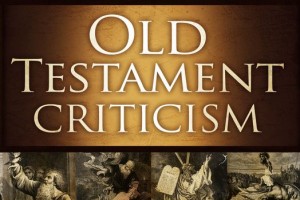Stewardship is something I’ve been thinking about a lot lately. I currently work in the Purchasing department at Biola University. From office supplies and furniture, construction and facilities projects, materials and rentals for university events, cadavers and live specimens for biological sciences, books for various departments, to travel requests for professors, staff members, and student groups, we really do buy everything. I never expected to end up working in the financial sector of the university, but it has definitely been an interesting and eye-opening experience. It’s been good for me to see how the finance department seeks to be good stewards of the resources entrusted to the university. I also recently finished taking Dave Ramsey’s Financial Peace University (which Jamie also writes about here), and that course has been good in giving practical wisdom in budgeting and dealing with my personal finances (especially with all the student loans I have accrued). However, while Dave Ramsey gives good practical steps on how to get out of debt, budget, save, and invest, he doesn’t necessarily give a robust theology of stewardship or giving and seems to just take Bible verses (many times out of context) to make a few of his points. Since I like understanding the theological basis for things, I recently read the book Christians in an Age of Wealth: A Biblical Theology for Stewardship by Craig Blomberg, which is part of the Biblical Theology for Life Series, edited by Jonathan Lunde.
I appreciate Blomberg’s writing-style, because it is very readable and accessible. It is well-researched, but not overly academic, so that it appeals to a wider audience. He organizes the book by different topics, and then gives an overview of what the Bible states from the Old Testament to the New Testament. He discusses how money and wealth are gifts from the Lord, and that money in and of itself is not a bad thing. Yet, there is a seduction to sin with money, as the desire to accumulate more, and greed, can become sinful. He gives ample evidence throughout the Bible of the dangers of the love of money. On the opposite spectrum, he also shows how God also doesn’t call us to extreme asceticism – so he gives a balanced view of handling money.
He also shows the importance to give to the poor and needy, and that those who are wealthy and have plenty, need to be giving to help the poor and oppressed. Caring for those who are poor and needy stems from God’s character, as He cares for the poor. Blomberg criticizes the prosperity or health and wealth gospel – that following God means that Christians will also be wealthy and successful. He also critiques the way many churches spend much money on building bigger buildings and just solely spending money on their upkeep and maintenance, and staff salaries, but ignore missions and helping the poor.
While Blomberg emphasizes the need for generously giving to those who are poor and needy, he also shows the need to be good stewards in supporting those in ministry, evangelism, and missions. Since this book is geared very much to the Western, or more specifically, the American church – in its overabundance of resources and wealth, he shows the low statistics of giving in America, and how much difference it would make if believers truly made giving a priority, instead of just following the cultural trends of accumulating wealth for oneself. Stewardship is something of central importance, even though many believers don’t see it as one – and the lack of giving can be tied to the lack of spiritual maturity in many churches. He addresses the issue of tithing, and how the tithe is not necessarily found in the New Testament, so that it is not prescriptive for all believers. This book is a highly practical book as his three final chapters offer the practical implications of individual as steward, government and business as stewards, and the church as steward.
Overall, I think this book is a good overview of the theology of stewardship. While not exhaustive, or the most in-depth on all the teachings about wealth and money in the Bible, Blomberg gives a practical overview in understanding money and how to be good stewards of what has been entrusted to us. I think this book would be beneficial for any believer to read, as Blomberg challenges our cultural assumptions of living the American dream in accumulating wealth for our happiness, and giving us a Biblical lens to see that all of our possessions are gifts from the Lord, as we need to be generous and responsible with what has been entrusted to us.
*Thanks to the people at Zondervan Academic for sending this book to me!





1 Comment
Leave your reply.